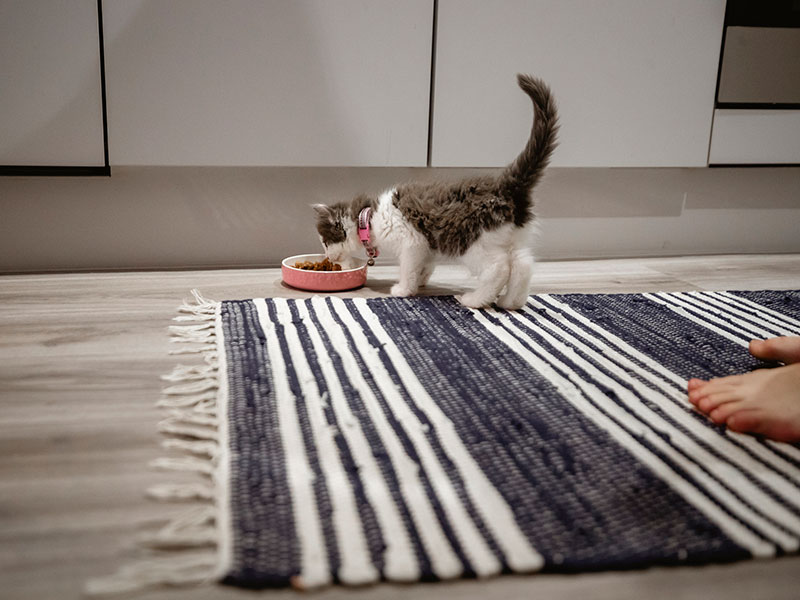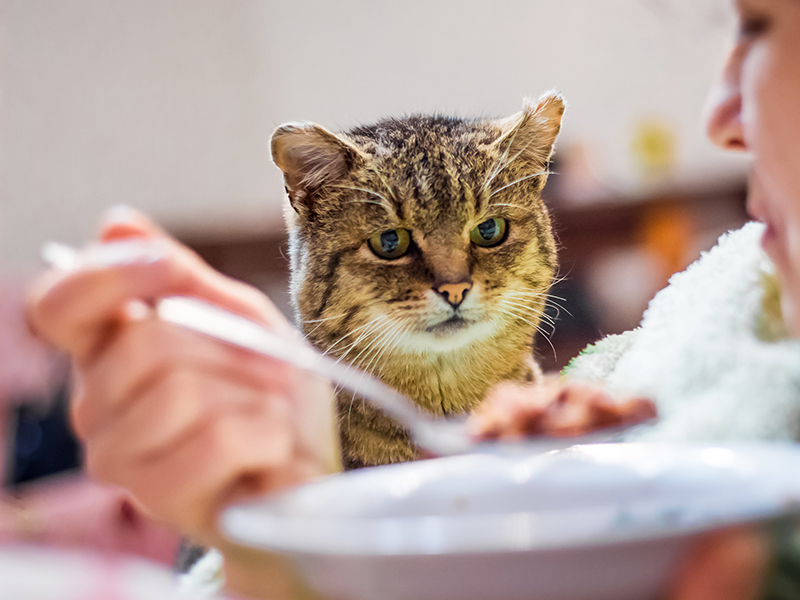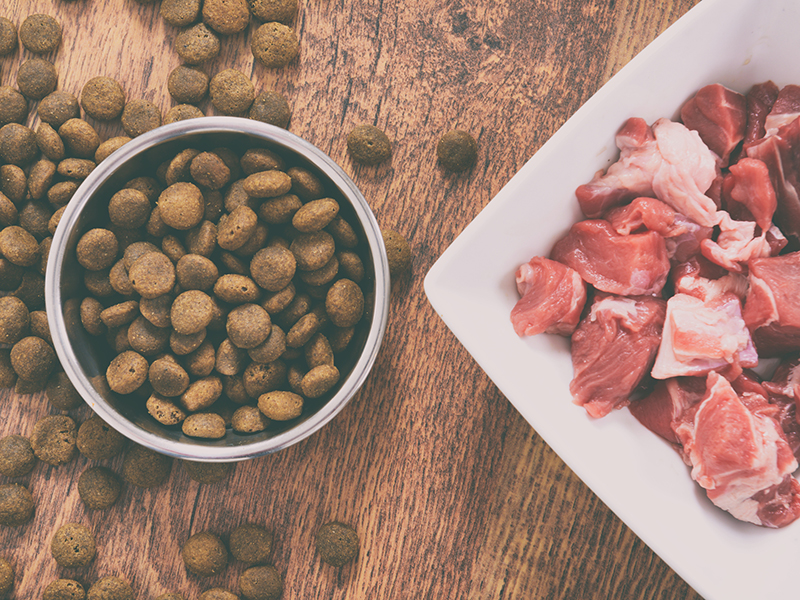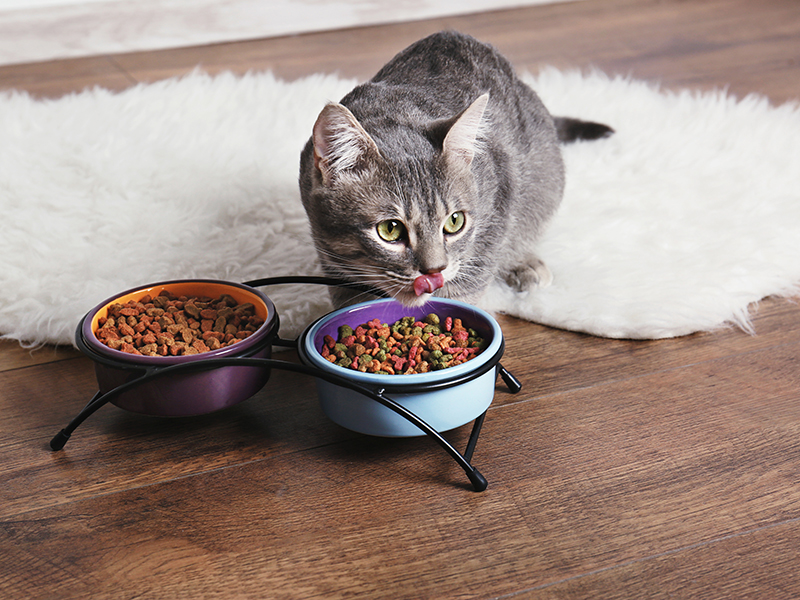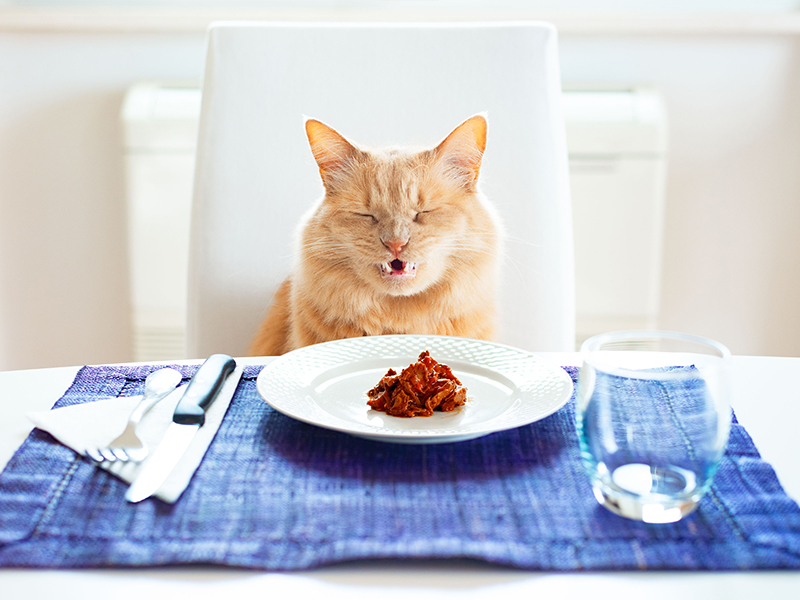Congrats on the arrival of your little ball of fluff and mischief! The cuteness overload is probably overwhelming, but if you’re trying to pull yourself together and get on top of your kitten care and nutrition, you’ve come to the right place! Here’s an easy to read guide on proper nutrition for kittens.
As a new kitten parent, you’ll want to do whatever you can to ensure that your kitty grows into a healthy cat (one you can curl up with while reading a good book!) Optimal nutrition from an early age is crucial to making this happen. As the days go by, nutrition will affect your kitten in the following ways:
- General health – with a focus on wellness and longevity
- Alertness – they should want to engage in energetic play
- Weight gain – we’re looking for a steady increase in weight
- Coat condition – should be glossy to the touch
- Digestion – no bloating with firm stools that are brown in color
Tips for the Early Days
Depending on when you welcome your kitten, they may or may not be weaned already.
Most kittens are naturally slender, so if your kitten is under 4 weeks old, you’ll have to start supplementing their mother’s milk with soft food around the 2.5 week marker. It’s usually around week 4 that a kitten will need to make a stronger transition from milk to kitten food.
Before full weaning is complete, your kitten will need around 25 calories for every 100 grams of their body weight.
By week 8, your kitten will hopefully be fully weaned and then the nutritional responsibilities will fall on you. Gah! That’s probably a lot to take in if you’re a first-time cat parent, but those selective cuddles and purrs will be worth it.
What you choose to feed your kitten will not only fuel their growth and development but also affect their behavior in terms of energy levels.
Expect your fluffball’s weight to double (or sometimes even triple) during the early weeks! These tiny felines will experience rapid growth during their first few months of life, so it’s your job to ensure that they have the right fuel for it. Growth spurts will begin to slow down around the 6 or 7 month marker, so you’ll have to readjust your feeding habits accordingly.
How Much to Feed your Kitten
Think of your kitten like a tiny athlete who needs to snack all day long! Growing bodies mean that they need to regularly replace calories in small portions to accommodate their tiny bellies.
In the beginning, it’s okay to try free feeding; giving them access to food throughout the day. It’s only around 4 to 6 months that you should aim for a more structured mealtime.
Kittens generally like to eat around 3 or 4 meals daily. The type of food you’re feeding them will also affect how many times per day they need to be fed. If you’ve opted to feed your kitten canned food – aim to provide 4 meals per day. If you want to expose your kitten to different textures and flavors as they grow older, it’s great to do the combo of wet and dry food early on – just be mindful of where your kitten is at in terms of chewing. With the portions for a dry and canned food combo, you can soften some kibble in water and then only do canned meals twice per day.
Your goal is to provide your kitty with optimal nutrition. Luckily, the smart folks over at the American Association of Feed Control Officials (AAFCO), work hard to regulate this kind of thing for store-bought pet food. Look for their approval plus the words ‘complete and balanced’ on kitten food products. This will help you feel more at ease about whether your kitten is getting everything they need. If you’re struggling to find AAFCO graded food, ensure that you round off mealtime with a good supplement.
Make the Calories Count
As gentle as kittens appear, remember that they are carnivorous beings! These tiny hunters need to be fed a highly nutritious meat-based diet.
As a basic guide, if your kitten has a body weight of around 2 pounds, they should receive approximately 10 grams of crude protein and 4 grams of total fat.
Kittens have a higher requirement for protein than adult cats, and they draw a lot of their energy from it – that treacherous laser dot isn’t going to catch itself!
Essential fatty acids (like omega-3) are also important for the development of your kitten’s nervous system, ability to learn, see, and maintain a healthy coat. Also look out for omega-6 that helps proper tissue functioning which relates to fat storage, liver and kidney health, as well as the development of muscles.
If (when) you’re treating your kitten, make sure that you factor in the calorie content of the treats – every bit counts! Treats should make up less than 10% of your kitten’s total daily calorie intake.
Things to Avoid Feeding Your Kitten
There is a raw food hype going on with pet owners these days but please note that certain raw foods can be harmful to your kitten. Avoid the following:
Raw meat – may contain dangerous amounts of bacteria and parasites.
Raw eggs – could affect your kitten’s absorption of certain vitamins which will harm their coat. Raw eggs also contain Salmonella.
Raw fish – contrary to popular belief, kittens should stay away from raw fish. It may cause them to be deficient in a B vitamin which affects their appetite. Some cases of seizures, and even fatalities, have been reported to vets after kittens have eaten raw fish.
You won’t need to give your kitten milk – in fact, most kittens struggle to digest it after weaning and end up with runny tummies. Rather opt for giving your kitty an all-day access pass to a fresh bowl of water!

